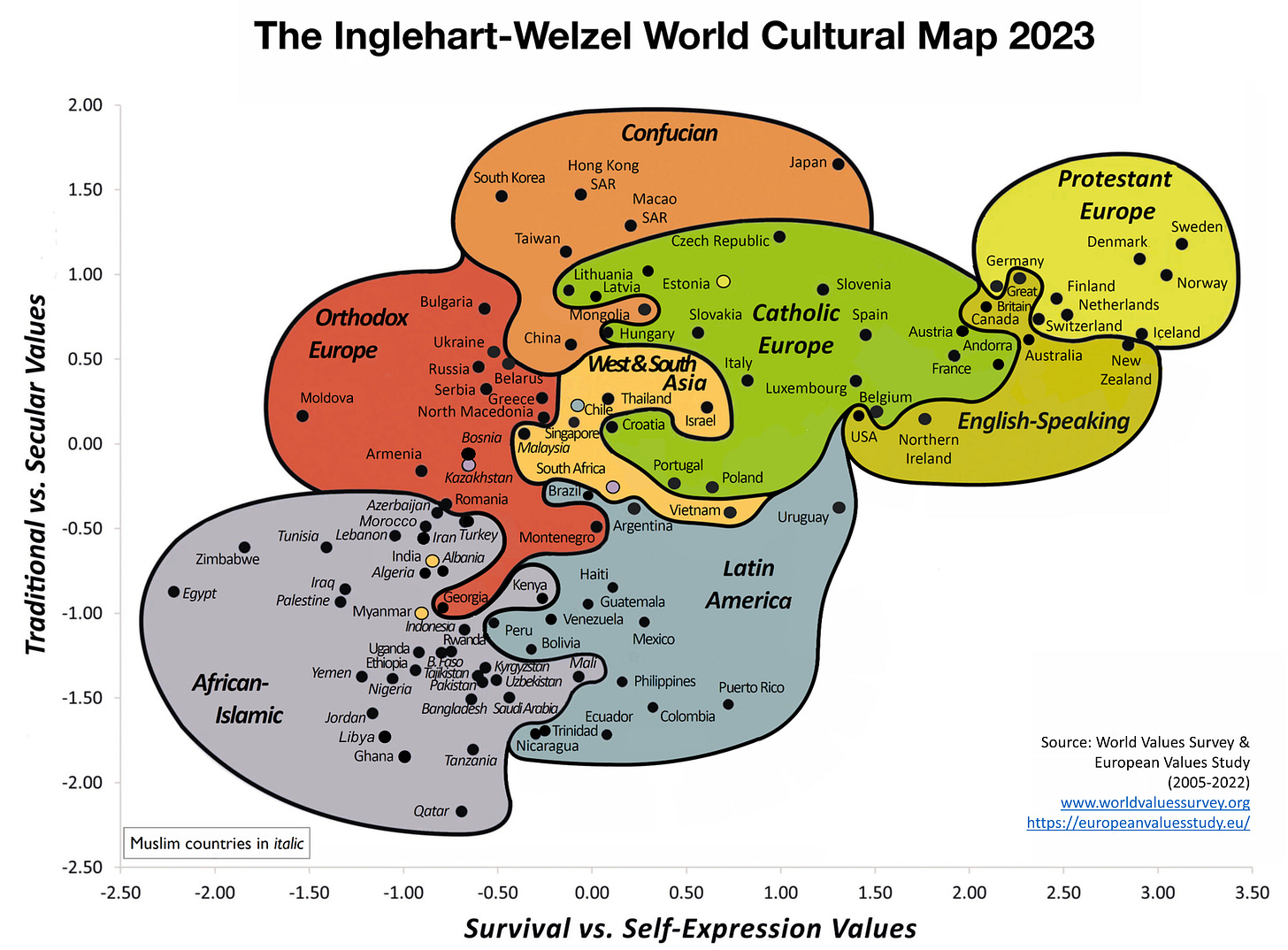Ukraine’s Artistic Uprising: How Prestige Bias Inspires Cultural Change!
Culture has no inevitable flight path. Even if people become wealthier, they do not necessarily liberalise.
Modernisation theorists differ, instead asserting that prosperity invariably leads to scientific secularism. Frankly, I’m sceptical. This global theory seems rather parochial, erroneously extrapolating from Western trajectories to the entire world.
While Modernisation theorists do acknowledge cultural heterogeneity, they attribute it entirely to differences in the rate of change. Muslim societies will liberalise, they argue, just more slowly.
This assertion seems difficult to reconcile with MENA and Central Asia’s mid-twentieth century secularisation, then subsequent Islamic revival.
Having studied cultural evolution of every society in the world, I see a more complex tapestry. Each society possesses a unique cultural inheritance, a realm of permissibility, with progressives and conservatives exerting pressure at opposite ends of the spectrum.
What shapes the direction of travel? Well, humans have a remarkable capacity for cultural learning, rooted in our evolved practices of food-sharing. Desire for social inclusion and status motivate careful attention to what their peers do and revere.
Successful individuals - lavished with praise and deference - are widely emulated by others eager for similar acclaim.
But who is seen as prestigious?
Well, herein lies the importance of political economy. When a ruling regime is perceived to have failed - due to economic stagnation or humiliating defeat - their ideology tends to lose legitimacy. Citizens then seek alternatives, learning from demonstrably effective models of success (whether that’s Munich, Mecca, or Moscow).
What’s the best evidence for this?




